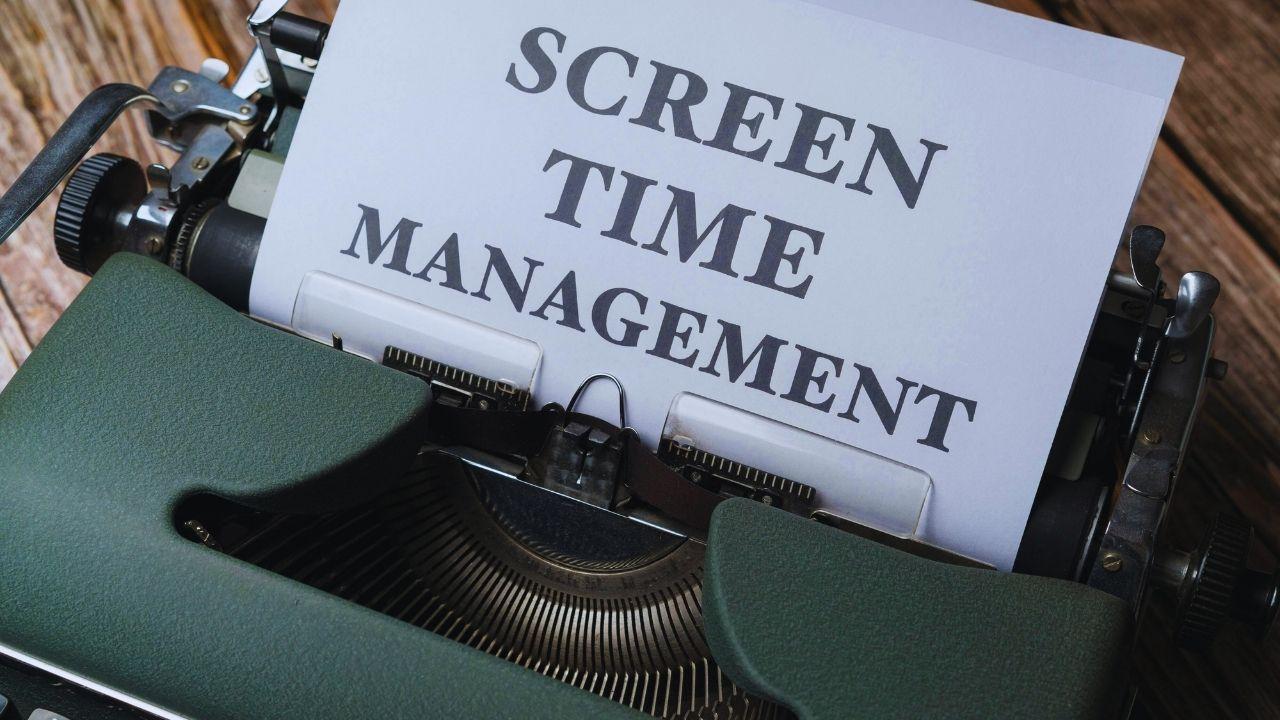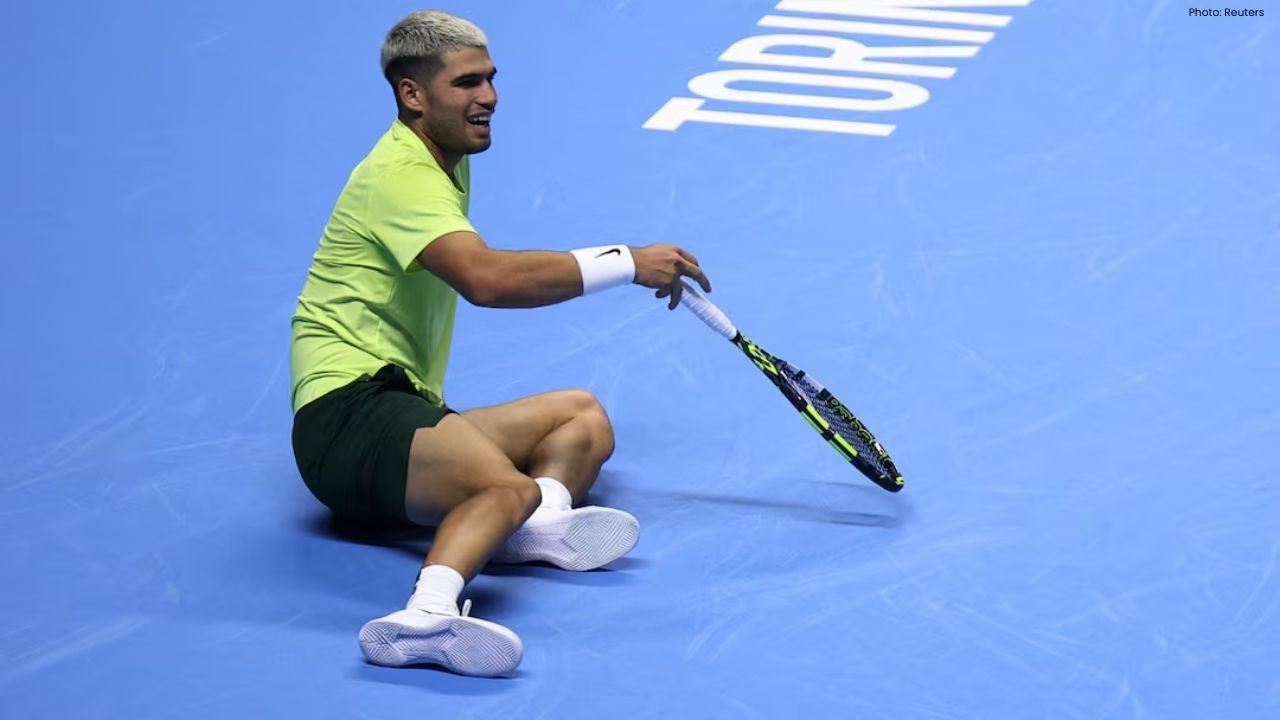
Join 10k+ people to get notified about new posts, news and tips.
Do not worry we don't spam!

Post by : Anis Farhan
In today’s world, where smartphones, laptops, and social media dominate daily life, it has become nearly impossible to disconnect. Young people between the ages of 15 and 30 are spending more hours on screens than any previous generation. From waking up and checking notifications to ending the night scrolling through feeds, the dependency on devices has grown to alarming levels. What started as a tool for convenience and communication has now turned into a cycle of addiction, affecting concentration, productivity, and personal relationships.
Digital addiction is not just about how much time is spent online; it is about how that time disrupts real-world interactions and mental well-being. Studies show that people are losing their ability to focus for extended periods, while relationships are being strained by the constant pull of digital distractions. This issue is becoming one of the defining challenges of our time, particularly for young adults navigating education, work, and social connections.
The term “digital addiction” refers to the compulsive use of electronic devices and platforms in a way that interferes with everyday life. Unlike past generations who relied on television or occasional phone calls, today’s youth are immersed in a digital ecosystem 24/7. Social media apps are designed to capture attention through endless scrolling, while video games and streaming services provide instant gratification at the click of a button.
The rise of short-form video platforms, like TikTok and Instagram Reels, has intensified this issue. These apps are engineered to deliver dopamine hits—quick bursts of satisfaction that keep users hooked. As a result, screen time has skyrocketed, and young people often find themselves spending hours online without realizing it.
One of the most concerning consequences of digital addiction is the erosion of concentration. The constant notifications, pop-ups, and alerts make it difficult for the brain to settle into deep focus. Tasks that require sustained attention, such as reading, studying, or working, are interrupted repeatedly. Over time, this leads to a shorter attention span.
Psychologists argue that the brain is being rewired to expect fast-paced stimulation, leaving individuals restless when they are not engaged with a screen. This is particularly dangerous for students and young professionals who need to concentrate for academic success or career growth. The inability to focus deeply can reduce productivity, affect grades, and limit job performance.
Relationships, both romantic and social, are also under pressure due to digital addiction. Many young people spend more time engaging with digital platforms than with their family or friends. This creates emotional distance, misunderstandings, and sometimes even conflict.
For instance, “phubbing”—the act of snubbing someone in favor of a phone—has become a common complaint in relationships. Couples often argue when one partner prioritizes online interactions over face-to-face communication. Friendships are also impacted, as group hangouts may turn into moments where everyone is silently scrolling through their devices.
Parents have expressed concern that digital addiction is eroding family bonds. Dinner tables once filled with conversations are now silent, as each member is preoccupied with their phone. This disconnect is creating a generation that struggles with empathy, emotional intelligence, and real-life communication skills.
Beyond concentration and relationships, digital addiction has significant psychological effects. Social media, in particular, has been linked to anxiety, depression, and low self-esteem. Young people often compare their lives to the carefully curated images they see online, leading to feelings of inadequacy.
Cyberbullying and online harassment further exacerbate the issue, leaving deep emotional scars. The pressure to always be “connected” and “available” can also create stress, as young people fear missing out on important updates or conversations. This fear of missing out, commonly known as FOMO, drives compulsive checking of devices, which only worsens the cycle of addiction.
Digital addiction doesn’t just affect the mind; it also impacts physical health. Excessive screen time, especially before bed, disrupts sleep patterns by interfering with the body’s natural production of melatonin. Poor sleep can lead to fatigue, irritability, and decreased cognitive function.
Additionally, spending hours hunched over devices contributes to posture problems, neck strain, and even vision issues. The lack of physical activity associated with prolonged screen use also raises the risk of obesity and related health conditions. For young people who are still developing physically, these risks are particularly concerning.
Overcoming digital addiction requires conscious effort and discipline. Some effective strategies include:
Setting screen time limits: Most smartphones now offer built-in features to track and control usage.
Creating no-phone zones: Establishing spaces, such as bedrooms or dining tables, where devices are not allowed.
Prioritizing offline activities: Engaging in hobbies, exercise, or social gatherings without digital interruptions.
Digital detox days: Taking one day a week to completely disconnect from screens.
By implementing small but consistent changes, young people can regain control over their time and focus. The goal is not to abandon technology entirely, but to use it mindfully in a way that supports, rather than harms, personal well-being.
While individuals must take responsibility for their screen habits, parents, schools, and society also play a role in addressing digital addiction. Parents can set healthy examples by limiting their own screen time, while schools can incorporate lessons on digital wellness into their curricula. Employers, too, can promote healthier work-life balance by encouraging offline breaks and respecting personal boundaries outside of work hours.
Society at large needs to shift the conversation from glorifying “always online” culture to valuing mindfulness, focus, and meaningful relationships. Just as awareness campaigns about smoking or fast food changed public attitudes, a similar cultural shift is needed to tackle digital addiction.
Digital technology is not inherently harmful—it has revolutionized communication, education, and entertainment. However, when its use becomes excessive and uncontrolled, it turns into a form of addiction that damages concentration and relationships. For young people between 15 and 30, the challenge is to embrace the benefits of technology without losing the ability to focus, connect, and thrive in the real world.
The journey to balance may not be easy, but it is necessary. By taking small steps to reduce screen dependency, prioritizing face-to-face interactions, and building healthier digital habits, individuals can reclaim their focus, strengthen their relationships, and live fuller lives.
This article is intended for informational purposes only and should not be taken as medical or psychological advice. Readers experiencing severe issues related to digital addiction should seek professional guidance from qualified experts.










Hasan Nawaz Excluded from Pakistan's ODI and T20I Squads
Pakistan has excluded batter Hasan Nawaz from their upcoming ODI and T20I series, directing him to c

Alcaraz Relieved to Face Musetti Instead of Djokovic at Finals
Carlos Alcaraz is pleased to face Lorenzo Musetti rather than Novak Djokovic at the ATP Finals in Tu

Strong Starts for Alcaraz and Zverev at 2025 ATP Finals
Carlos Alcaraz and Alexander Zverev kicked off their ATP Finals journeys with commendable victories

Ducks Triumph Over Jets 4-1, Carlsson Shines with Two Goals
Leo Carlsson led the Anaheim Ducks to their seventh consecutive win, scoring twice against the Winni

Brindley's Overtime Goal Secures Avalanche's 5-4 Win Against Canucks
Gavin Brindley's overtime goal led the Avalanche to a dramatic 5-4 victory over the Canucks in a thr

Wild Dominate Flames with 2-0 Shutout Led by Wallstedt
Jesper Wallstedt shone with 36 saves, earning his first shutout of the season in the Minnesota Wild'